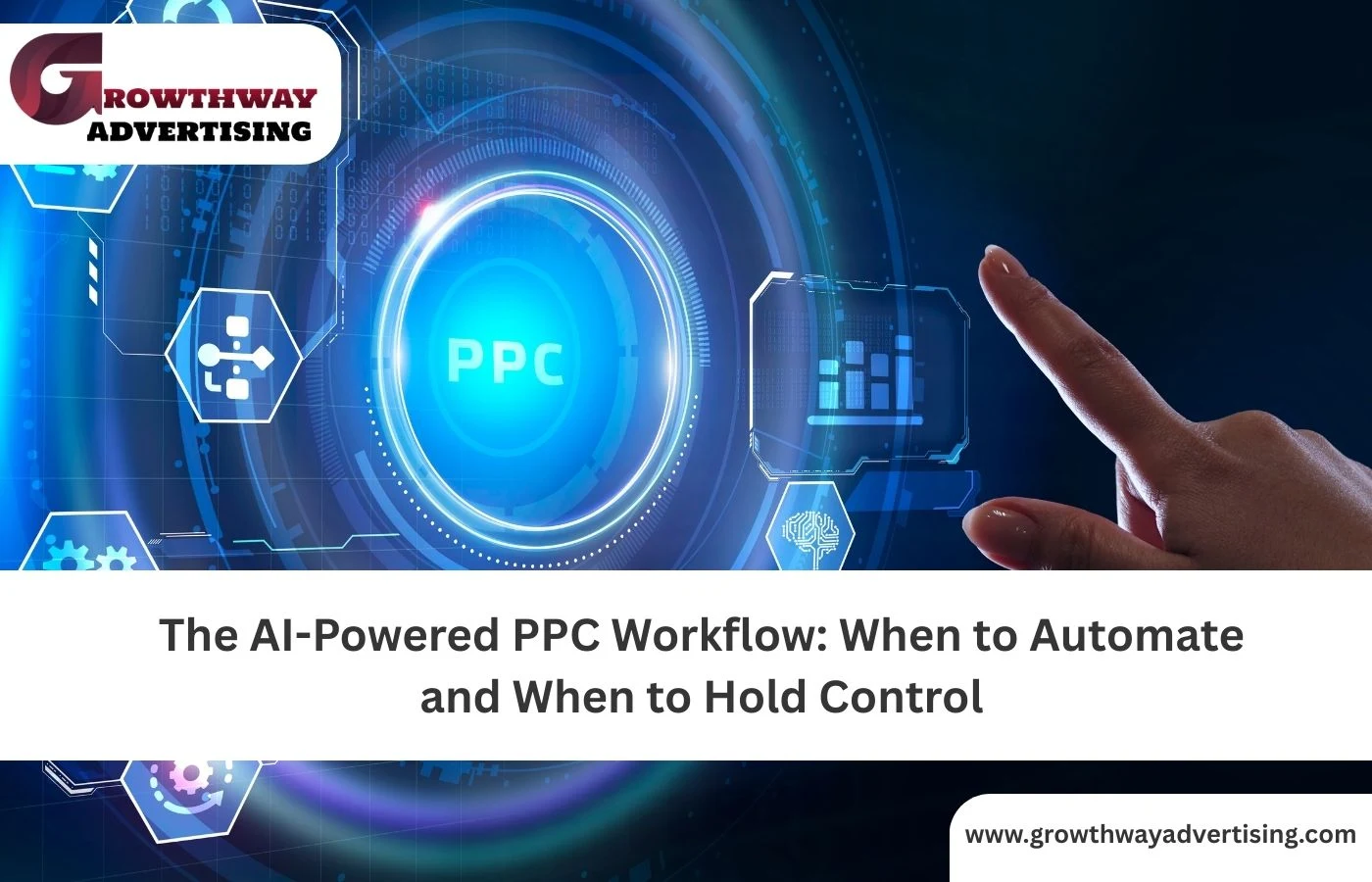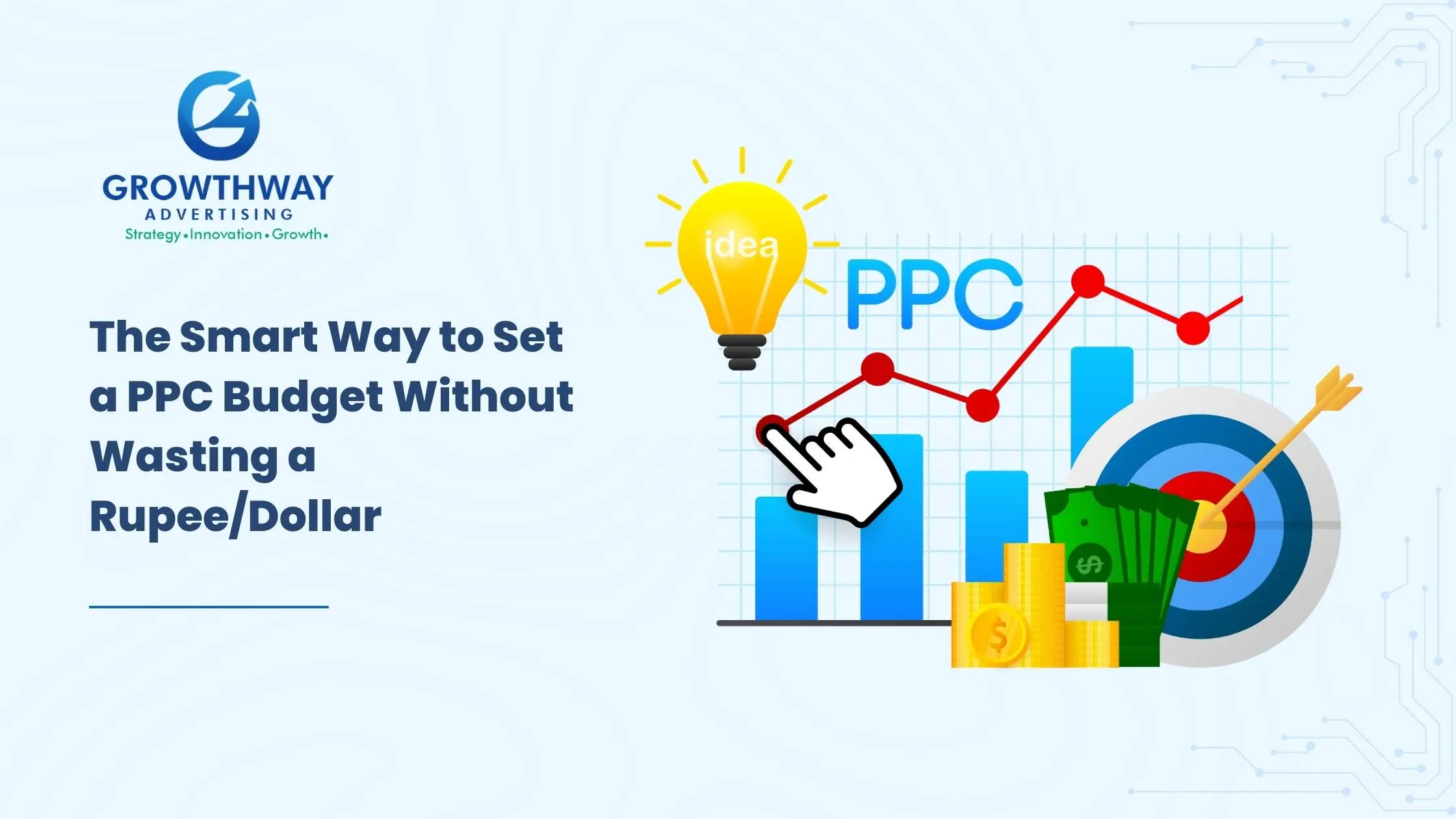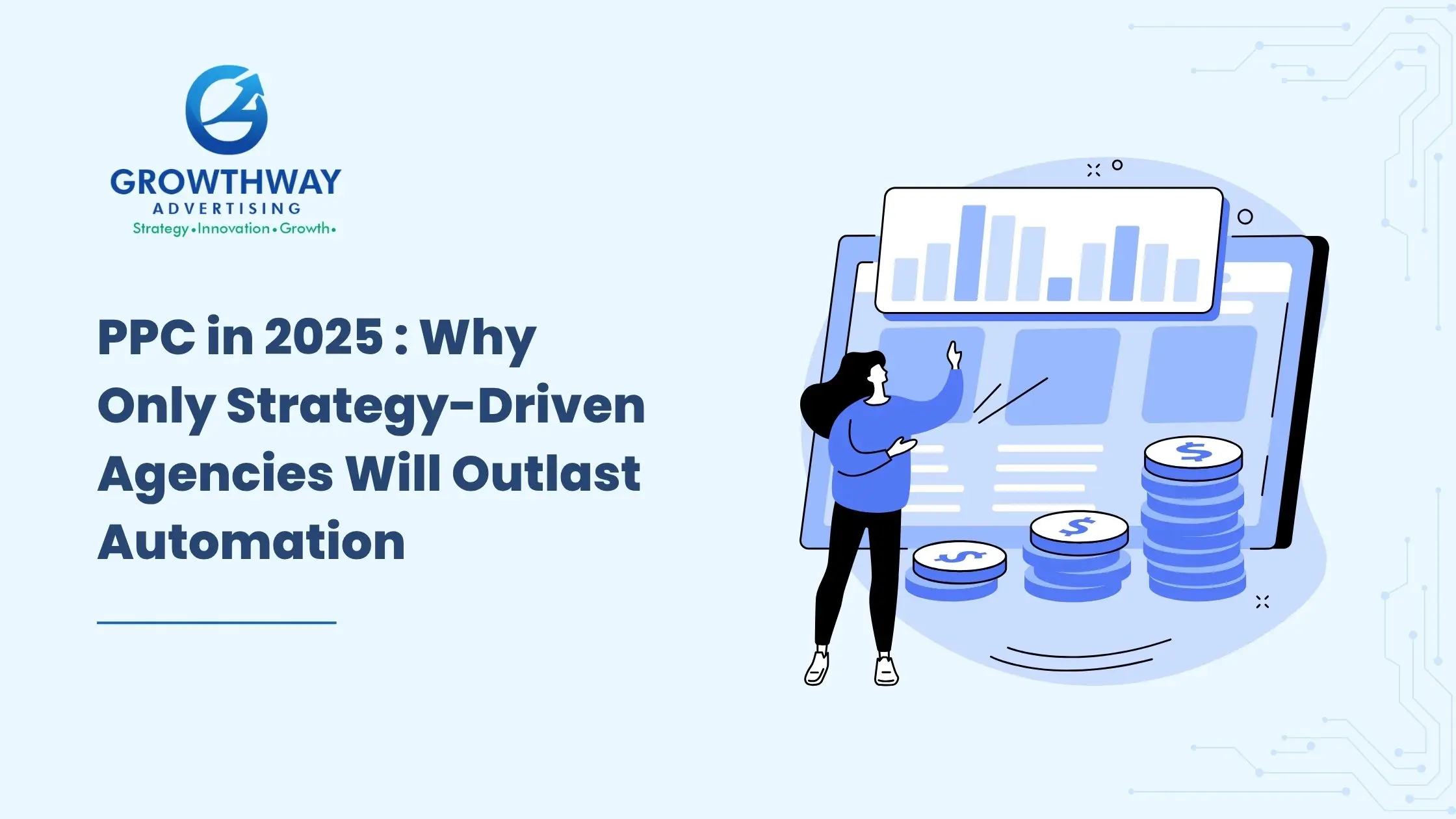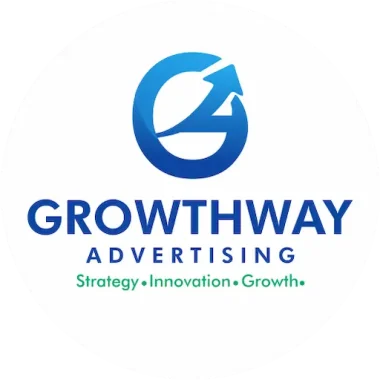The shift toward artificial intelligence has transformed how ppc campaigns are planned, managed, and scaled. The big question for marketers, advertisers, and PPC agencies is not whether to deploy AI, but rather the extent to which they should leave it in control. Excess automation and the campaigns are devoid of human touch. Inadequate, and you lose the speed and efficiency of machine learning.
This guide decomposes the AI-enabled PPC automation workflow, highlighting where automation is appropriate and where a human touch is still necessary.
Why AI Has Become Central to PPC
A pay-per-click advertising company used to spend countless hours on keyword spreadsheets, bid adjustments, and manual ad testing. Those can now be processed in real time with machine learning in advertising. Artificial intelligence identifies patterns through thousands of signals – device, time of day, demographics, audience behavior – and optimizes your campaigns more quickly than any manager possible.
With that said, not all workflows should be automated. The most intelligent ppc advertisements firms understand that balance is the key: automation to work quickly and with volume; human intervention to strategise and be creative.
Where Automation Excels in the PPC Workflow
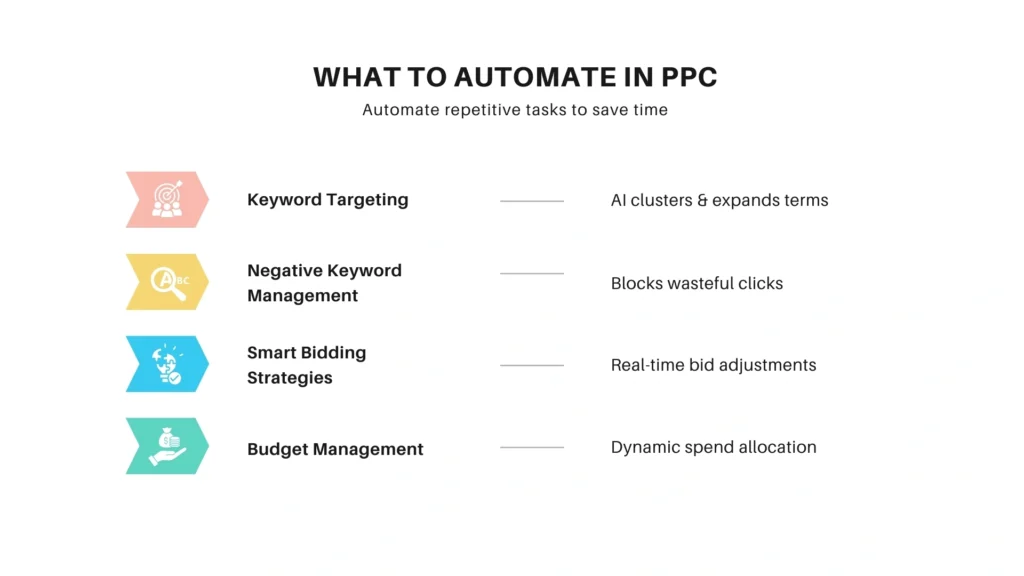
Keyword Research and Targeting
There is great accuracy in keyword targeting through AI systems. They recognize long-tail terms, group keywords based on intent, and predict which queries will achieve the most conversions.
This automation saves time for any PPC company, ensuring campaigns address both open and hidden opportunities. Still, context matters. Not all keywords identified by AI can be used in brand positioning, which is why human supervision remains relevant.
Negative Keyword Management
Negative keyword management is one of the strong applications of AI. Auto systems will help identify irrelevant search terms that waste your ad money and automatically exclude them. This keeps campaigns lean and efficient. Marketers, however, must monitor exclusions carefully to avoid eliminating potentially valuable traffic.
Smart Bidding and Budget Allocation
One of the most influential PPC management AI applications includes innovative bidding strategies. Algorithms optimize real-time bids based on target CPA, ROAS consideration, including audience, device, and timing.
In the case of budget management, AI will guarantee the reallocation of funds to those campaigns or channels that are performing the best. The limitation is that AI can only optimize whatever you feed it; when your KPIs are ambiguous, the system might optimize in the wrong direction.
Ad Creative Testing and Optimization
With dynamic ad copy generation and ad creative optimization, AI can create and test multiple ad variations simultaneously. This reduces the time needed to determine the best headlines, descriptions, and images.
However, AI-generated copy is frequently not personal. The best PPC agency relies on automation for testing volume and human teams for refining tone, cultural sensitivity, and storytelling to ensure ad effectiveness.
Cross-Channel Campaign Management
Knowledgeable consumers communicate on Google, Bing, Meta, and LinkedIn and then convert. AI-powered cross-channel PPC management unifies these campaigns into a single view. This eliminates silos, enabling PPC marketing services teams to modify spend and creative across multiple platforms flexibly.
Automation makes it much easier; however, determining which channels to focus on, when to push awareness, and when to push conversion is a matter of human judgment.
Where Human Oversight Is Non-Negotiable
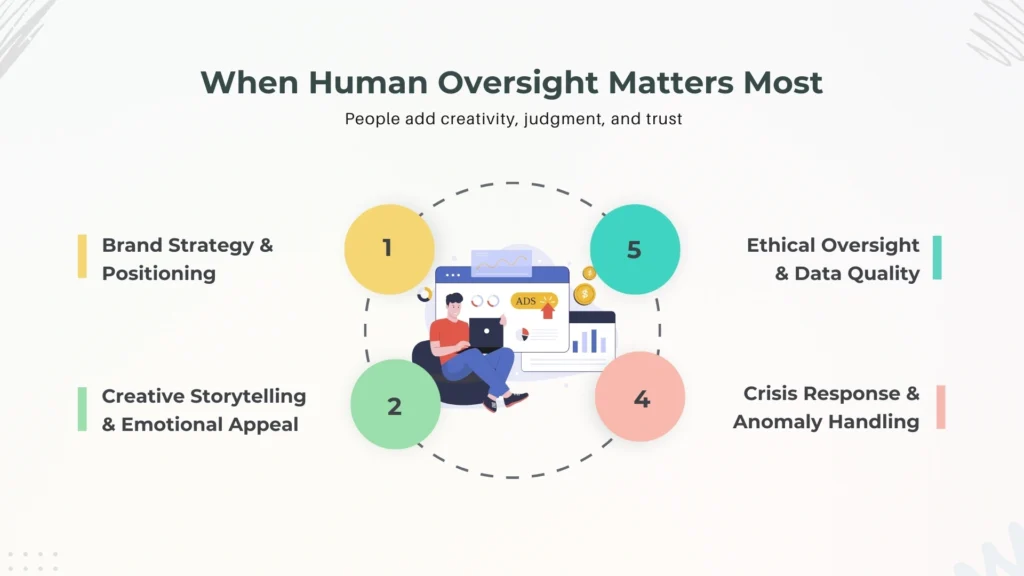
Strategy and Brand Alignment
AI excels at tactical changes, but it lacks the ability to comprehend long-term brand building. Paid campaigns require humans to make decisions on how to integrate storytelling, product positioning, and customer journeys. A pay per click advertising company that relies solely on automation risks producing generic, transactional campaigns.
Creative and Emotional Appeal
AI can optimize and be creative, but it cannot create emotional resonance. Human marketers still provide humor, empathy, and reference to cultures. People shape the message, and automation includes performance data.
Ethical and Data Considerations
AI decisions are only as strong as the data they are trained on. Flawed data leads to flawed targeting. Ethical oversight is critical to avoid bias, ensure data privacy, and maintain transparency in campaigns managed by a ppc agency.
Crisis Management and Campaign Drift
AI will point out anomalies, like sudden CPC spikes, CTR drops, or conversion falls, but judgment is needed when deciding how to respond. Should you stop the advert cluster, turn messaging, or redirect spending? It is where a human-guided ppc firm provides an invaluable contribution.
Building a Balanced Workflow
So, what does an effective AI-powered PPC workflow look like for ppc advertising companies?
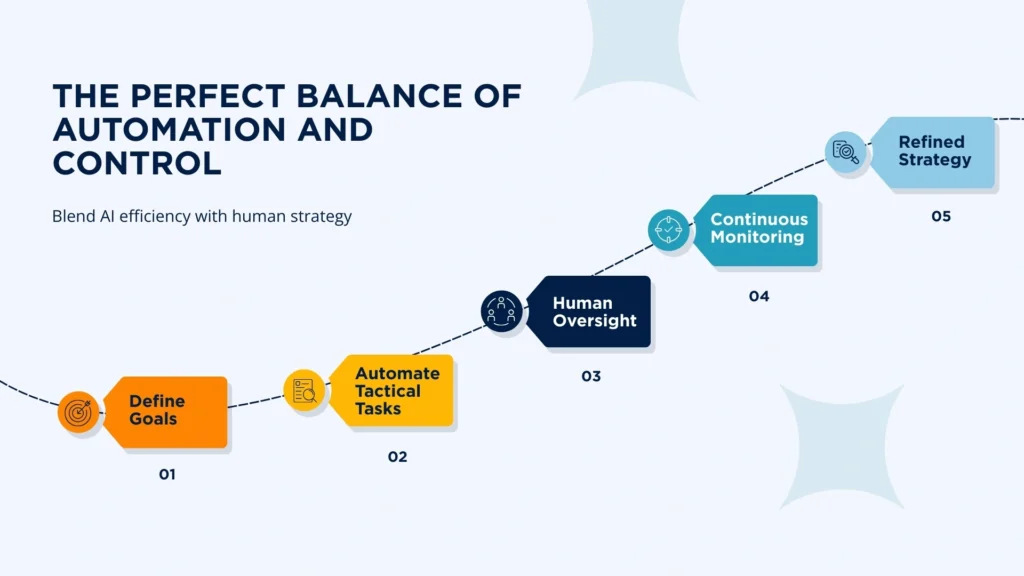
- Set Clear Objectives
Define precise metrics like ROAS, CPA, or impression share. Automation can’t optimize without a clear target. - Automate Tactical Execution
Use AI for repetitive, data-heavy tasks such as smart bidding strategies, negative keyword management, and budget management. - Keep Humans on Creative Decisions
Allow AI to generate dynamic ad copy generation ideas but let people handle the storytelling and emotional resonance. - Monitor Cross-Channel Performance
Lean on cross-channel PPC management to simplify reporting and budget shifts. Human marketers still need to evaluate whether campaign direction matches broader goals. - Build Guardrails and Overrides
Create checkpoints where humans step in if spending drifts, if exclusions get too aggressive, or if AI-generated copy strays from brand guidelines.
Topics Often Overlooked in AI-Powered PPC
Most discussions of AI in PPC management emphasize automation wins but miss key considerations:
- Data Quality and Bias: Without clean, representative data, algorithms can misfire.
- Transparency in AI Decisions: Stakeholders need to know why certain bids, keywords, or ads were chosen.
- Fallbacks for Low-Volume Campaigns: AI struggles with accounts that don’t produce enough data; manual rules remain essential.
- Long-Term Brand Impact: Automation often focuses on short-term metrics like CTR or CPA rather than customer lifetime value.
- Ethical Guardrails: AI-driven targeting must respect privacy and avoid exploiting sensitive audience categories.
Placing these gaps in their place, ppc marketing services can be more than efficiency machines, they can be strategic growth partners.
The Human + AI Partnership in PPC
The rise of machine learning in advertising means no serious provider of ppc services can ignore automation. But giving up full control isn’t the answer.
The smartest approach is a hybrid: let AI handle the heavy lifting of keyword targeting, negative keyword management, budget management, dynamic ad copy generation, and cross-channel PPC management. Then let human creativity, ethics, and long-term thinking ensure campaigns connect with real customers.
That balance is what defines a standout ppc company or best ppc agency in today’s competitive market.
FAQ’s
Automation works best for PPC automation tasks such as smart bidding strategies, negative keyword management, budget management, and cross-channel PPC management.
Humans should lead on brand strategy, storytelling, emotional appeal, ethical decisions, and crisis management areas where AI lacks context.
AI systems can analyze large datasets to surface new opportunities, group keywords by intent, and predict which terms are most likely to convert.
Automation ensures spend is reallocated to the campaigns and channels delivering the best performance, reducing wasted budget and improving efficiency.
Negative keyword management prevents ads from showing on irrelevant searches, protecting budget and improving targeting accuracy. AI can automate much of this process.
Smart bidding strategies use AI to adjust bids in real time based on audience, device, and conversion goals, helping maximize ROI without constant manual changes.

